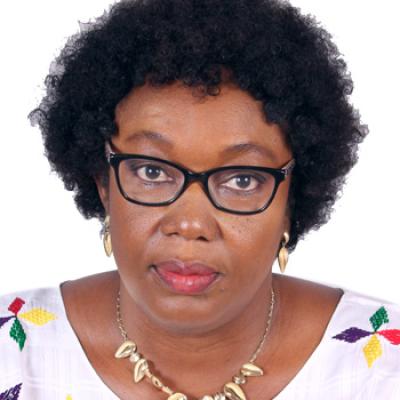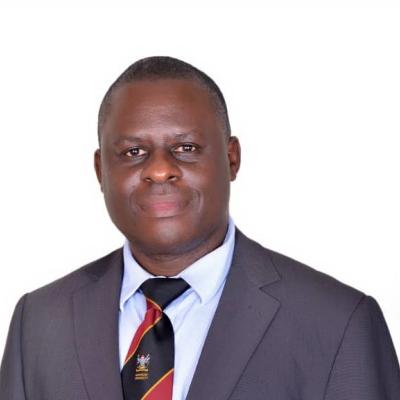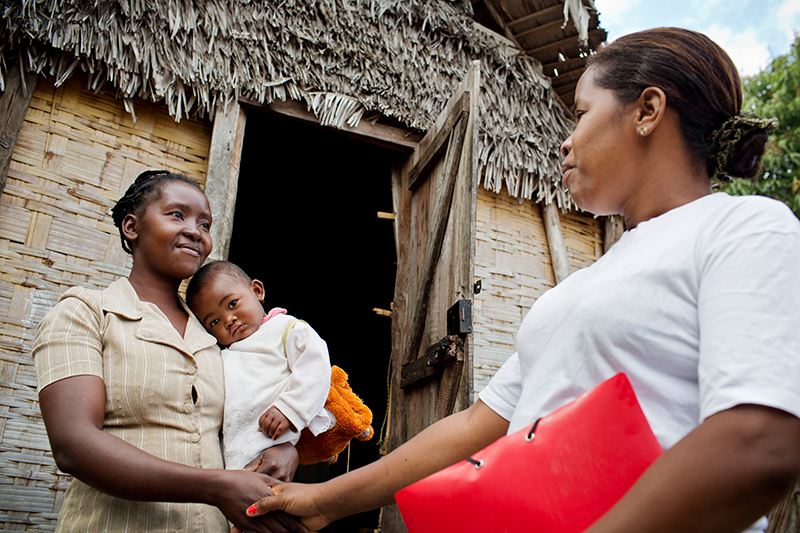The Child Health Task Force is a network of global and country-based organizations and individuals working to design and implement child health programs that take a life-course approach. Created in 2017, the Task Force aims to generate and share evidence on how to implement equitable, comprehensive, and integrated programs that will translate into better outcomes for children. As a learning community, the Task Force facilitates learning and sharing, provides countries and child health stakeholders with access to a pool of technical experts, tested implementation tools, approaches, and engages members to translate knowledge into better practices.
To date, the Child Health Task Force is comprised of over 8,000 individuals representing donors, governments, and implementing partners at global and country levels. Members of the Task Force work together in 10 subgroups addressing various elements of children health programming such as, implementation science, monitoring and evaluation, commodities and supplies, and fostering multi-sectoral linkages with nutrition, emergencies, and humanitarian response. Through the subgroups, members work towards achieving their objectives by advocating, coordinating, and providing technical support to countries to implement programs.
Goal
To strengthen comprehensive child health programs for all - focused on children aged 0-19 in line with the Global Strategy for Women’s, Children’s, and Adolescents’ Health (2016-2030) - through primary health care, inclusive of community health systems.
Themes
The work of the Child Health Task Force focuses on five themes. Each theme has corresponding objectives, outcome measures, and activities.
- Advocacy: Advocate for integrated packages and increased financing of child health programs within primary health care.
- Coordination: Foster organization collaboration at global and country levels in support of comprehensive child health programs.
- Support countries to implement effective and comprehensive child health programs to achieve effective coverage and impact at scale.
- Learning: Promote implementation science, advance innovations, and engender the use of research results to inform program design and implementation.
- Knowledge management: Build evidence on comprehensive child health programming and make it publicly accessible, especially to child health stakeholders.
Objectives of the Child Health Task Force
In order to achieve strong programming for child health, the Child Health Task Force focuses on the following objectives:
- Strengthen the community health platform to deliver a comprehensive package of health promotion, prevention, and curative interventions, and support the building of strong linkages to primary health care facilities and first-level hospitals.
- Support delivery of high-quality case management:
- Integrated Management of Newborn and Childhood Illness (IMNCI); and,
- Integrated Community Case Management (iCCM), including community-based management of malnutrition.
- Support strengthening of Emergency Triage Assessment and Treatment (ETAT).
- Strengthen referral and counter-referral from community to the primary care facility, the first-level referral hospitals, and back to the appropriate level.
History
The Child Health Task Force is an evolution of the Integrated Community Case Management (iCCM) Task Force. The iCCM Task Force was established in 2010 to advance the state of community-based treatment for three major childhood killers—diarrhea, pneumonia, and malaria. As iCCM programs expanded, the iCCM Task Force provided a coordination mechanism for global experts and a forum to build consensus on tools and materials created to support implementation of iCCM across countries. At the close of the Millennium Development Goals in 2015, the iCCM Task Force had advocated for favorable iCCM policies in many countries and promoted harmonized iCCM tools and approaches, made state-of-the-art tools for implementation available to its members and the child health community, and enabled stakeholders to have a unified voice when advocating for evidence-based iCCM policies and practices.
The changing global child health landscape prompted the shift from iCCM to a broader child health mandate for the Task Force. At the program level, as iCCM expanded from NGO-led small scale, to government-led national scale programs, experts recognized that increasingly, success depended on imbedding iCCM and community health workers in the health system with strong linkages to primary care facilities. Further, the recommendations of the USAID-funded Maternal and Child Survival Program’s (MCSP) “Mapping Global Leadership in Child Health” study; the World Health Organization (WHO)-led “Strategic Review of Options for the Future Building on Lessons Learnt from Integrated Management of Neonatal and Childhood Illness (IMNCI)”; and the 2017 WHO “Child Health Moment of Reflection” meeting in Florence, Italy enforced the need for a broader mandate of the Task Force in the Sustainable Development Goals (SDG) era. Thus, the Child Health Task Force was created in November 2017 to contribute to achieving the ambitious goal of reducing child mortality to 25 deaths per 1,000 live births, or below, by 2030.
Funding
The Child Health Task Force Secretariat was funded by the United States Agency for International Development (USAID) Global Health and Africa Bureaus. USAID provided funding support for the Child Health Task Force Secretariat through the USAID Advancing Nutrition project (August 2019 - September 2023) and through the MOMENTUM Routine Immunization Transformation and Equity (M-RITE) project (October 2023-March 2025). Activities of the Child Health Task Force subgroups are funded through member organizations or projects.
Steering Committee
The Steering Committee provides support, guidance, and oversight to the Child Health Task Force. Its roles and responsibilities include: setting the agenda of the Child Health Task Force in consultation with members; promoting the agenda and results of the Child Health Task Force to stakeholders and potential funders; interpreting Secretariat progress and other reports and findings from reviews; and, reviewing resource mobilization for Child Health Task Force activities.
The Steering Committee is comprised of Aga Khan University, CORE Group, Global Financing Facility/World Bank, John Snow, Inc. (JSI), Ministry of Health Malawi, Save the Children, UNICEF, USAID, and WHO.
Committee Members

George Chagaluka
Clinical Head of Department, Paediatric and Child Health
Queen Elizabeth Central Hospital, Blantyre, Malawi

Shabina Ariff
Associate Professor and Neonatologist Consultant
Aga Khan University, Pakistan

Marcella Valerie Zombre Sanon
Director of Family Health
Burkina Faso Ministry of Health

John Paul Clark
Lead Health Specialist for Country Operations
Global Financing Facility

Brian Mulligan
Chief of Party for USAID Maternal and Child Health and Nutrition Activity
JSI-Laos

Peter Waiswa
Associate Professor
Makerere University School of Public Health; Global Health Division, Karolinska Institutet

Eric Swedberg
Senior Director, Child Health
Save the Children

Joseph Addo-Yobo
Executive Director
Total Family Health Organisation

Rory Nefdt
Health Advisor, Chief of Child and Community Health
UNICEF
Secretariat
The Secretariat’s roles and responsibilities include:
- Supporting the Steering Committee to provide leadership to the Child Health Task Force so it remains relevant to the overall child health agenda.
- Supporting necessary adaptations of Task Force functions to align with the evolving child health landscape and narrative under the SDGs.
- Supporting the Steering Committee and subgroups to develop communication products for advocacy to strengthen child health programs at country level.
- Facilitating the work of the Child Health Task Force, including managing the membership listserv, convening meetings of members and stakeholders, recording and disseminating meeting minutes, and following up on meeting action items.
- Leading the function of knowledge management by collating, packaging, sharing, and disseminating evidence generated by the Task Force and ensuring they are accessible on the Child Health Task Force website.
- Monitoring and evaluating progress by regularly reviewing the Child Health Task Force (members and subgroups) activities and progress towards achieving its objectives and providing updates to the Steering Committee.

